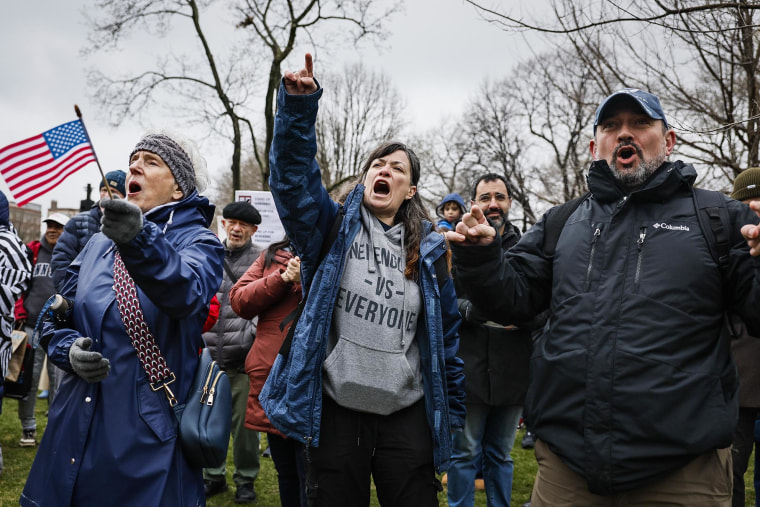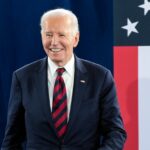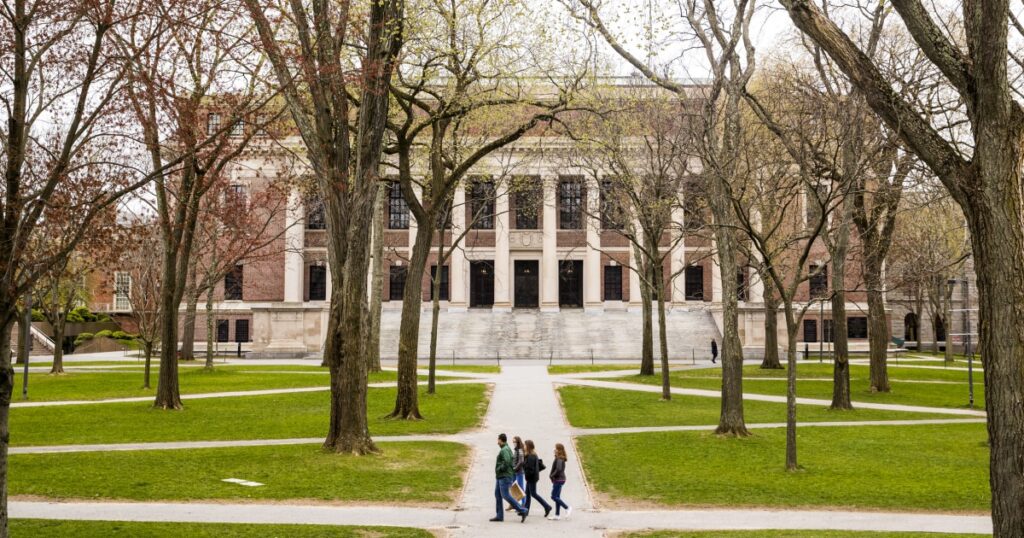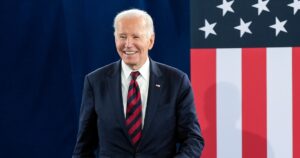Harvard University’s defiance of the Trump administration Monday brought instant repercussions for the institution — and a burst of jubilation from some on campus and in the broader education world who’ve clamored for an elite school to take a stand.
“If Harvard can’t do it, then who can?” said Michael Bronski, a professor in the university’s Studies of Women, Gender, and Sexuality program. “It’s always right to make the most moral decision, and we’ll see what the outcome is.”
Harvard’s lawyers sent a letter Monday rejecting a list of demands the Trump administration had sent the school as part of an ongoing review of several universities over allegations of antisemitism.
In a statement posted online, Harvard President Alan Garber referred to the demands as “an attempt to control the Harvard community” and vowed to fight back. “The University will not surrender its independence or relinquish its constitutional rights,” he wrote.
The administration’s sweeping demands would have required the university to restrict the acceptance of international students who are “hostile to the American values and institutions” and report to the Department of Homeland Security any foreign-born student who violates Harvard’s code of conduct, among other measures.
While the Trump administration reacted within hours by freezing over $2 billion in grants and contracts to Harvard, the university’s stance was widely applauded within the academic world after weeks of unprecedented government actions against higher education institutions.
“They clearly did not just the right thing, but the necessary thing, and my guess is that a lot of other institutions will follow suit,” said Jon Fansmith, senior vice president of government relations at the American Council on Education, a higher education trade group.
Harvard — founded a century before the United States — is by far the wealthiest university in the country and the most influential in the world. It boasts more alumni who’ve become U.S. presidents, Supreme Court justices, members of Congress, living billionaires and Nobel Prize winners than any other school.
Maya Jasanoff, a history professor at Harvard, said the scope of the demands left the university with no choice but to reject them.
“It had the potential to interfere with every single aspect of everything that we do on campus: what I sign, what I say, what I write about, what I think about practically, who is in my classroom, who are my colleagues, everything,” Jasanoff said.
The Trump administration has already cut or frozen funding to several Ivy League institutions and opened dozens of investigations into other colleges about how they’ve dealt with antisemitism and pro-Palestinian protests over the past two years.
Fellow academics have condemned higher education leaders for not speaking out more forcefully against the Trump administration’s pressure on universities.
Michael Roth, president of Wesleyan University and an outspoken critic of the Trump administration’s directives to colleges, applauded Harvard’s statement.
“Federal funding for universities must not depend on a loyalty oath,” Roth said in a statement.
Hundreds of Harvard students and faculty and staff members demonstrated last weekend, pleading with the university administration not to give in, adding to an earlier open letter with a similar sentiment signed by 600 university educators, who expressed fear that the school would follow Columbia University’s actions.
Last month, Columbia agreed to some of the Trump administration’s proposed reforms, which included banning masks at most protests, enlisting new campus security officers with the ability to arrest students and hiring a senior vice provost to oversee the Department of Middle East, South Asian and African studies.
Late Monday, Columbia’s interim president issued a statement noting Harvard’s stand and said it would not consent to some of the government’s other “overly prescriptive” demands. Other prominent universities — Brown, Cornell, Princeton, the Massachusetts Institute of Technology and Caltech — also joined several state schools in a lawsuit Monday against recent research funding cuts imposed by the Trump administration.
Nico Perrino, executive vice president of the Foundation for Individual Rights and Expression, a civil liberties watchdog group, saw this week’s developments as a significant change in tune.
“What Harvard does, others follow,” Perrino said. “I do think we’ll see some colleges and universities start to grow a spine in response to Harvard standing up.”

The school, like most research universities, relies on grants and funding from the federal government to complete multiyear scientific inquiries in a variety of fields. Harvard also accepts federal student loans and Pell grants from students to pay for their schooling. All colleges that accept federal funding are bound to follow civil rights laws.
“Unfortunately, Harvard has not taken the president or the administration’s demands seriously,” Karoline Leavitt, White House press secretary, said at a briefing Tuesday.
Leavitt added that President Donald Trump wants Harvard to apologize “to its Jewish American students for allowing such egregious behavior.”
The Harvard Republican Club said in a statement that it hoped Harvard “will return to the American principles that formed the great men of this nation.” Echoing Trump administration comments, the student group said, “It is not the constitutional right of any private university to receive federal funding in perpetuity.”
But several students welcomed Harvard’s stand. Henry Pahlow, a freshman who’s studying government and economics, called it a demonstration of leadership in the face of adversity.
“Presidential terms last four years, funding’s temporary, and policy changes,” Pahlow said. “But the legacy you set as a university is forever.”
Some of the students who were happy with Harvard’s actions challenged it to do even more.
Matthew Tobin, a sophomore who’s studying government and economics, said he wants Harvard to take a greater stand against immigration crackdowns on foreign students.
“This is the first step, and we’re incredibly glad that Harvard made it. It was brave,” Tobin said. “But a lot of students are now looking towards what the university can do next and how they can continue to lead this fight.”











More Stories
Biden goes after Trump on Social Security in his first post-presidency speech
Rodents on property, dog stayed by Betsy Arakawa’s side
Wink Martindale, the genial game-show host, dies at 91